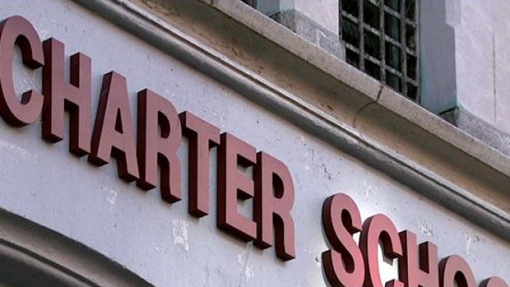 Dr. William Hite Jr who was a superintendent in Prince George’s County before applying to Philadelphia caused a similar mess in Prince George’s County.
Dr. William Hite Jr who was a superintendent in Prince George’s County before applying to Philadelphia caused a similar mess in Prince George’s County.
Philly.com has a story this week that distills many of the troubling qualities of the charter school movement down to a disturbing essence. All these millions of dollars are being drained in Philadelphia school district under Dr. William Hite Jr (pictured above).
Yes, it’s that bad.
This deeply reported piece by Alex Wigglesworth and Ryan Briggs zooms in on one school and one deal: the academically well-regarded String Theory Charter School, which is housed in a high-end eight-story office building at 16th and Vine. This is the same building that not long ago was the North American headquarters for GlaxoSmithKline. It would be eyebrow-raising enough if the taxpayer-funded String Theory were merely leasing such high-end digs. But the school — or, technically, a separate nonprofit run by two of the school’s board members — actually owns the tower, and acquired it through a $55 million tax-exempt bond deal.
It was the largest bond deal of its kind in city history.
It is also the most conspicuous example yet of a risky, expensive, and fast-growing financial scheme underpinning the rapid expansion of Philadelphia charters — a market now worth nearly $500 million. But the bond financing behind the mountain of money gets little scrutiny on whether the debt is a smart use of Pennsylvania’s limited educational dollars.
The lack of transparency can translate into deals that may be unsustainable. Shortly after moving into its flashy high rise, String Theory posted its first operating deficit. After revealing they were $500,000 in the red from paying out millions annually to bondholders, administrators told parents they were cutting certain classes and suspending bus service as cost-saving measures.
Deeper in the story, we learn that the school leases the property from that nonprofit controlled by two board members, and then collects $188,000 a year from the state, which reimburses charter schools for some lease costs. This is, we are told, not at all unusual arrangement.
The story also shines a light on the consultants and attorneys who are profiting off these charter land deals. One New Jersey firm has collected at least $5 million in consulting services for charters that have received municipal bonds to fund capital improvements and property acquisitions.
It’s a complicated story, and you really should read the whole thing.
But here are my takeaways from the piece.
1. Charter school administrators and leaders are every bit as capable as school district officials of making boneheaded financial decisions that saddle their respective institutions with crippling debt.
This isn’t exactly news, of course, but nonetheless the overwhelming public perception is that it’s public school districts that squander taxpayer money, not charter schools. This crippling, false perception makes it politically easier for politicians in Harrisburg to fund public Philadelphia schools at levels well below their needs.
To be sure, there are many charters that are managed responsibly and effectively. These schools are, by their very nature, independent operators, and the bad decisions made by some charters don’t predict bad decision-making by others.
But it’s long past time to set aside the clearly bogus notion that charters = efficient stewardship of public money, and public school districts = waste and fraud.
2. Profit-minded businesses are destroying whatever moral authority the education reform movement had.
I’ve long cringed when ed reform skeptics attacked the motives of charter advocates and others who’d like to see the public school system reinvented (or scrapped). With very rare exceptions, the individuals I’ve interviewed and spoken with in the ed reform movement over the years are True Believers: their fury and impatience with traditional public education is real and righteous. I haven’t always agreed with where they’re coming from, to say the least, but I’ve long dismissed accusations that reformers are in it for the money.
Wait, you might say, much the same has always been true of publicly-run school districts! And, yes, reports of bad contracts, undisciplined spending and politically-connected consultants were, in the past, commonplace in the School District of Philadelphia.
But that’s precisely the point. Charters were supposed to be different. Traditional public schools were beholden: to teacher’s unions, to political masters, to a powerful class of consultants and attorneys. Charters were supposed to be the indies. But as the charter movement grows, a big corps of financial interests has grown up around it. Increasingly, charters look just as financially beholden to an array of interests, only it’s harder to tell exactly who and what those interests are.
This is a really significant problem for ed reform advocates, and I’m not sure that it can be solved. The moral clarity of the early charter movement — nonprofit, about the kids, self-reliant — well, that’s gone. Increasingly, it seems not just fair to question the motives of ed reformers, but necessary.
3. The charter movement is way too big and way too ambitious to operate on an ad hoc basis.
As Philly.com reports, one of the entities authorizing these tax-exempt bonds for charter schools is PIDC, the Philadelphia Industrial Development Corporation. PIDC is an unusually effective organization (they run the Navy Yard, for instance), that’s run jointly by business interests and the City of Philadelphia.
PIDC’s reason for existence is economic development, and while you could make a case that building up charter schools is an economic development good, it’s hardly a slam-dunk, direct-line kind of argument. This isn’t a new Dietz and Watson factory.
John Grady, PIDC executive director, writes to say that the agency hasn’t made charters part of its economic development. Rather, he says, tax exempt financing “is regulated by federal and state law,” and that PIDC’s role is to administer “the legal process for accessing tax-exempt debt as required by, and pursuant to, these laws.” In other words, this isn’t a PIDC initiative, and charters are just using the agency to access tax-exempt bond markets, as is their right under law.
But is there a better way? One of the most interesting quotes in the Philly.com story comes from Bruce Baker, a Rutgers education professor and a frequent critic of the financing mechanisms used to fund charter schools. As Philly.com says:
Baker described the system as one that evolved out of necessity, with little foresight. No concrete financing vehicle was ever created for charters, and many schools had in the past relied on leasing buildings or taking out commercial loans with even higher interest rates.
“Who can blame them?” Baker said. “For each of the parties involved, their behaviors kind of make sense. But it’s still stupid public policy.”
There are 86 charter schools in Philadelphia alone, educating more than 64,000 students. This isn’t a boutique public education side business any more, and it hans’t been for a long, long time. And yet, we still lack coherent policy and mechanisms for something as basic as facilities financing for charter schools.
And it’s not just the buildings. The School District’s charter oversight office is still understaffed and under-resourced. And charter operators frequently bristle at the prospect of more accountability. But something’s got to give here. The charter movement can’t keep growing and eating up tax dollars while operating in the relative darkness.
Read more at http://www.phillymag.com/citified/2015/09/17/charter-school-problems/#gPLkkXcW0HQbI7KP.99
















 Two teachers who were fired along with every other teacher in their
Two teachers who were fired along with every other teacher in their 




